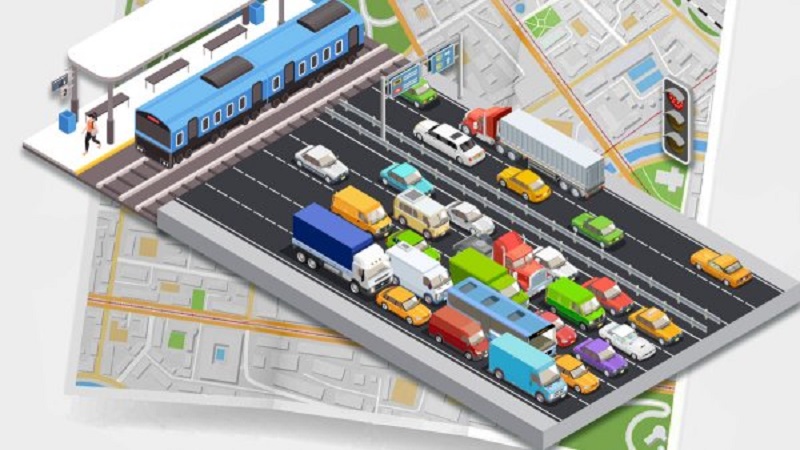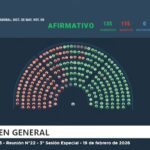
The government of mercy moved forward with the reduction of subsidies for bus and train transportation in the AMBAand with the elimination of the Compensation Fund that he received rest of the country. Consequently, businessmen in the sector threatened with increases in fares that could reach the $ 1500, that is, the cost of this adjustment is transferred to workers and users. It’s part of his plan to reduce public spending and meet adjustment goals with the IMF to guarantee payments of the fraudulent debt.
The official story and that of the employers’ associations is that Without subsidies they will not be able to meet the costs and that the high tariff is inevitable. There is no other alternative? What is the cost and profitability structure of the services? What have been the profits of the companies? What have the subsidies they receive from the State been used for?
In the case of San Salvador de Jujuythe economist and provincial deputy PTS-FITU, Gaston Remyshows that there is no such bankruptcy as the companies say, and that with the value of the ticket without subsidy, the costs can already be met, including a profit margin. In other words, Companies have a minimum guaranteed profitability in the ticket and a maximum through subsidies. With the subsidies they pocket extraordinary profits.
“The government is betting on an increase in rates, but also on an adjustment in the subsidies that companies receive, despite the higher costs they face. This leads to services perceived as expensive by users and whose quality does not match what they are paying for,” says the economist specialized in transportation, Rafael Skiardaressis, in an interview for The Daily Left. on the relationship between tariff increases and the removal of subsidies that were intended for transport companies.
Review of increases at the national level
In it AMBA, the minimum bus ticket rose to $270 and the train ticket to $130, and as of April 1, those who do not have the increase registered must pay $430 for the minimum bus ticket and $260 for the train ticket. From April the subway ticket will cost $574 and will reach $757 in July, a hard blow to the pocket.
In Córdoba, the bus ticket will rise 105% to $700.
In San Salvador de Jujuy, companies ask for a ticket of up to $1,000, which means a 300% increase.
In San Nicolás, province of Buenos Aires, in an extraordinary session the councilors approved in record time the increase in the bus ticket to $690. And these examples are repeated throughout the country, where threats and requests from companies are of tickets up to #1,500 or more.
“The announcement of the Compensation Fund was somewhat surprising, especially because the government began its administration saying that it wanted to balance the relationship of subsidies between the AMBA and the interior and this decision generates the opposite, aggravating the disparity at the federal level,” highlights the specialist. Skiardaressis.
The impact: stories from transport workers
“There are many people without credit in the rise, because of the increase. There may be fewer people during non-peak hours.”tells us Martíndriver for the Western bus company.
It is logical, inflation is liquefying popular income as part of a deliberate policy of inflationary “shock” to adjust salaries and pensions. Working families must juggle to try to make ends meet.
“What affects workers the most is the cost, in order to get to work they have to allocate between 20% and 30% of their salary. Miserable salaries, the parity is not opened, there is no increase. Everything increases except salaries. We see it when they make us credit it goes up day by day. They live from day to day and don’t arrive”complements Manuelanother worker from the same company.
Millions of people are being pushed into poverty Yet the indigence. In the last three months, they fell into poverty 3.6 million more Argentines and, as of January, there are 46.8% of poor, which represents about 22 million people, according to a work by the Di Tella University.
The increase in transportation fares, within a framework of inflation above 20% monthly, freezing of income and very delayed parities, will imply an even stronger blow for the popular sectors. In the midst of this crisis, Traveling will take up a large part of the salary, which can be up to 25% or 30%.
A domestic worker blank wins by agreement $173,758 monthly. If you travel from a neighborhood in Moreno to San Isidro every day, you pay a minimum from the neighborhood to the terminal and a second bus to San Isidro. If we take into account the round trip tickets, you will spend 40,192 pesos per month on travel expenses, working 5 days a week. He 24% of your salary It will only be used to go to work.
Skiadaressis calculates that “A free rate without subsidies, in dollars, is more similar to the value of the main metropolises in the region, but cWhen we compare it against salaries we would have the most expensive system of allexceeding 30% for a representative travel basket, while the regional average oscillates around 10%.”
“For the popular sectors it is even worse. Even though they have a subsidy on their card, they are the ones who have the least, the ones who receive the least.”, he reflects. Manuelcompany worker Western Transportation.
Transport, public service or private business?
The workers see from within the deterioration of the transportation system that users suffer in their pockets and in their daily lives. “The quality of transportation is poor, the units are quite deteriorated and the services are not what they should be. The solution would be that what is allocated in subsidies for entrepreneurs to earn is used to provide quality transportation for all users with a much lower ticket.”, he analyzes. Manuel.
The current model maintains privatizations in the subway and railways; and in the case of groups, the provision of the service is mostly private, prioritizing business profitability. This is not a new problem, it has been going on for years, and the different governments in power only applied patches. Under Kirchnerism, the subsidy policy guaranteed enormous profits for transportation businessmen, which was only called into question with the Once tragedy. The Macri government’s high tariffs were a direct blow to the pockets of the working class with increases of 1,118% in tolls, 601% in train tickets, 494% in short-distance buses and 322% in subways (AMBA). The tariff freeze in force since the pandemic and applied by the government of Alberto, Cristina and Massa, had the objective of alleviating the cost of transportation in the popular pocket. But overall, salaries did not recover the purchasing power lost under Macrism. In December alone they fell 13% in real terms.
Given the decline of the current transportation system, from the left we propose a different solution to the high rates and employer profits that Milei proposes. It is a public passenger transportation system, to guarantee accessible tickets for all and quality service:
With control of workers and users, we will be able to plan routes, invest in new units and apply a monthly subscription – unlimited pass – so that working families can use the service at a cheaper rate.
To confront the current tariffs and deny business maneuvers, we must demand access to the companies’ balance sheets to have real knowledge of the costs and investments.
Carrying out these measures involves massifying the organization among transport workers, holding assemblies, self-convened meetings, uniting with bus and railway drivers, and coordinating with neighborhood assemblies, to face the Milei adjustment plan, together with the millions of users. From below with this force we can demand from the UTA and the CGT a general strike and a real fight plan to defend the interests of the great majorities.
Source: www.laizquierdadiario.com

